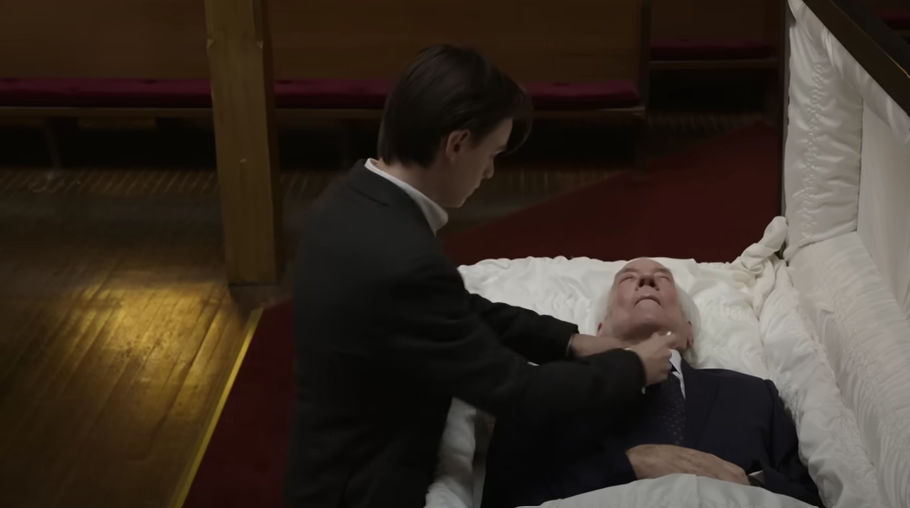Stephen King is one of the most iconic writers of the latter part of the 20th century. The Portland, Maine native has written some of the best horror and thriller stories ever, and according to Slate, is the 18th most adapted writer in history. A total of 127 works of King have made their way to the screen. The latest film to have been adapted for the screen from one of King’s works is the Netflix release, Mr. Harrigan’s Phone. The film’s screenplay has been written by John Lee Hancock, who also serves as the director.
Although Hancock is an established filmmaker who has earlier made some rather enjoyable movies like The Founder, The Highwaymen, and Saving Mr. Banks, his latest work is not likely to add a new feather to his cap. The film, whose source material is 88 pages long, moves in a sloth-like manner from the very beginning as we wait for something to happen. Instead of being a full-length feature film that bores from beginning to end, a trimmed and tightened version of the same could easily have served as an interesting episode of an anthology series.
Also Read| Who is Stephen King?
Mr. Harrigan’s Phone is a short story published in the 2020 book, If It Bleeds. The story centres around a boy called Craig (Jaeden Martell, whom we have earlier seen in It, King’s most commercially successful adaptation) whose reading of a sermon in a local church impresses billionaire Mr. Harrigan (Donald Sutherland) so much that he invites the former to read to him three days a week. Craig continues doing the same from his childhood till he is well into his teens when Harrigan passes away. On winning some money from a scratch coupon presented to him by Harrigan, Craig decides to gift the elderly man his first iPhone.
Harrigan, who is deeply invested in the financial world, finds the smartphone fascinating. But later, he tells Craig that the device is too powerful for humanity’s good, and can be used to spread misinformation as well as inflict all sorts of harm on gullible people. In voiceover narration, Craig admits how Harrigan managed to predict the future in that remark.
Also Read| Constance Wu claims ‘sexual harassment’ on set of Fresh Off the Boat set
It is when Harrigan dies that the true story begins to unfold. He keeps communicating with Craig from beyond the grave, and is even ready to aggressively solve his former employee’s problems with violence if necessary.
The major problem with this film is that not much happens in it for the large part. The story, which already does not have much to offer, drags on without managing to draw the audience in. The characters are all flatly written, and it is very clear that Hancock did not bother fleshing them out for his one-hour-46-minutes-long adaptation. Mr. Harrigan’s Phone wants to be a coming-of-age drama as well as a horror thriller, but manages to do justice to neither genre. The character of Craig does not face any considerable challenge during the course of the story that would make the audience invested in him. It is not he whom the story’s ghost haunts. He gets rid of the ghost as easily as he impresses a girl he has a crush on, gets into a prestigious college, comes into a lot of money, and in the initial part of the story, is gifted an iPhone by his father who works in a factory. Not much is at stake for Craig. Even the psychological trauma he goes through has not been portrayed successfully enough for it to have a notable impact on the viewer.
Also Read| Angelina Jolie divorce filing: Brad Pitt accused of child abuse
Craig’s mother is no more, but he never seems bothered about it all that much. In the voiceover, he keeps mentioning how his father misses his mother more than he does. The only problem he gets into is with a bully at school, but the issue resolves itself too easily when the violator is expelled from school.
It is a surprise that a production company like Bumhouse Productions, which has made films like the Paranormal Activity series, Insidious, and Get Out, would be enticed to make something as dull as Mr. Harrigan’s Phone. The only saving grace of the film are the performances of the two leading actors. It can easily be considered one of the weakest Stephen King adaptations of all time.







